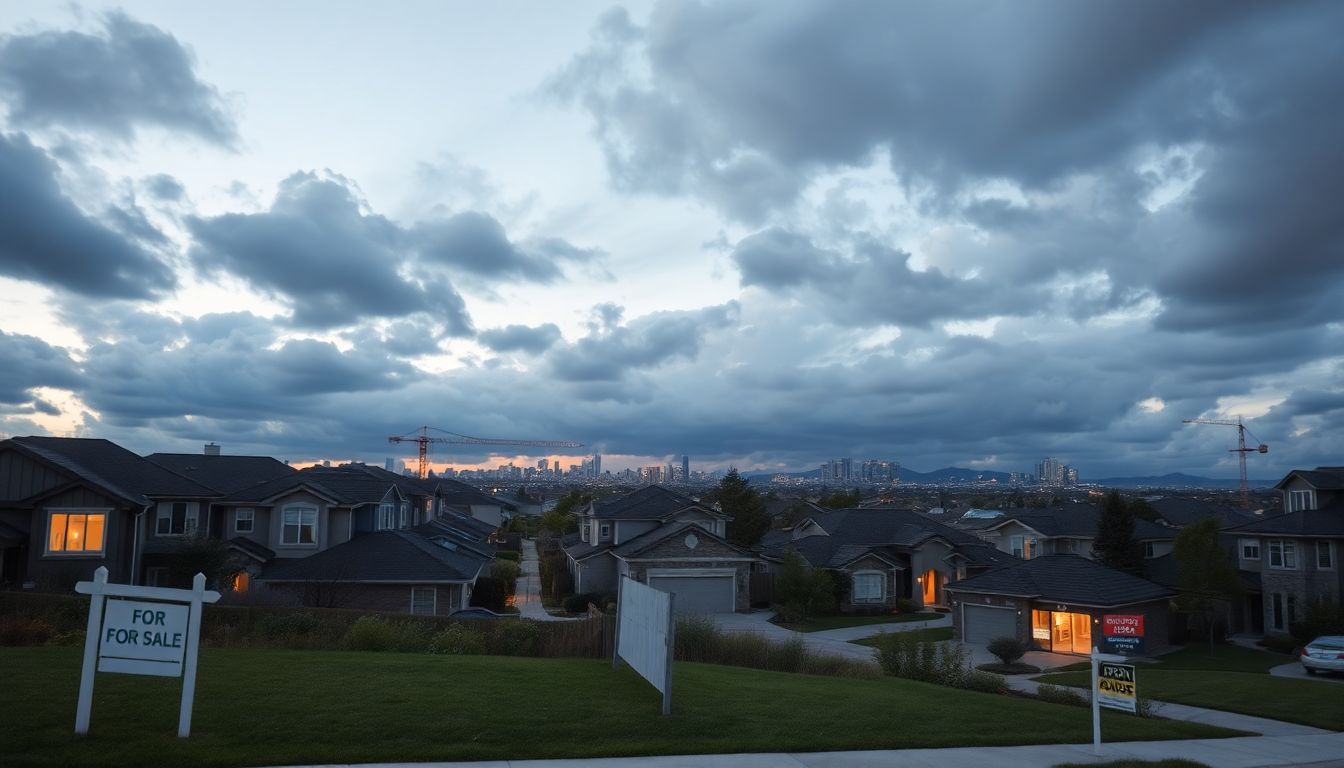Introduction
When the economy does slow down, it shakes up everyone—buyers, owners, investors, and even the market. It’s not necessarily slower growth; it may be changing the way we buy, sell, and construct homes altogether. The day’s economic signs, such as rising interest rates and unstable markets, make it progressively more difficult to be certain of what’s ahead in real estate. Preparing for the transition permits you to make better decisions, be it buying, selling, or investing.
It is important to learn how economic downturns impact the housing industry. Prices, demand, mortgage rates, and new homes all react in potentially counterintuitive manners. The article illustrates how a downturn would befuddle house prices, buyer attitudes, loan products, new home construction, and general housing affordability over the long run.
The Impact of Economic Downturns on House Prices
What Has Happened Before
A look at past downturns, like the 2008 downturn, gives the direction housing prices plummet. Prices declined in the majority of markets by 20-30% then. While others bottomed out, others remained flat or even rose. Knowing these trends is good to see what can happen today.
Hope of Housing Price Drop or Stabilization
A slowing economy translates to fewer people that would be in the market to buy a house. Greater quantities of houses on the market and fewer buyers establish prices in reverse. Prices will not decrease so much in some cases, though, because of steady demand. For example, in an area that has strong rental demand and low unemployment, prices will not move. Decreased demand is sometimes balanced by decreased new listings, which forestalls prices from falling.
Regional Differences in Home Price Reaction
All markets are not equal. Those with balanced local economies, like Austin or Dallas, will have an easier time getting through a downturn. Those that are based on industries that get damaged during an economic slump, like oil or manufacturing, see prices fall more. The local labor markets and homes available determine the size of the price change.
Buyer Behavior and Demand During a Slowing Economy
Homebuyer Confidence and Buying Power Trends
Slowing is hardest on confidence. Homebuyers are cautious, postponing costly purchases. They worry they will lose their jobs or end up paying more. That worry depresses demand for homes, which creates slower sales and softer prices.
Shift Towards Affordable and Compact Homes
Recession diminishes purchasing power. People opt for less expensive houses or renting, rather than purchasing. Starter homes or condos are in demand, as people attempt to maximize the value of their money. Facts tell us that during dismal times, consumers shift towards less expensive, lower-priced homes.
Effect of Availability of Mortgages and Lending Criteria
Banks make their lending terms stricter when the economy slows. They require higher down payments and more stringent credit screening. First-time homebuyers will find it tough to qualify for a loan. Good credit homeowners continue to get good rates but borrowing that much more difficult overall.
Mortgage Rates and Financing Problems
Trends of Mortgage Interest Rate Patterns during Economic Slumps
Historically, mortgage rates fall in downturns as the Fed reduces rates. Reasonable rates get cheaper to borrow and in the short run enhance home sales. However, when rates increase due to inflation, affordability decreases once more. Latest forecasts predict volatile mortgage rates under uncertainty in the economy.
Impact on Mortgage Affordability and Availability
As lenders become stricter, home loans become harder to qualify for, especially for individuals with less-than-perfect credit. Fixed-rate mortgages might be a savvy move to lock in lower payments when rates are higher before they go up even more. Knowledge of loan options enables buyers to plan better in uncertain situations.
Actionable Tips for Homebuyers and Homeowners
- Refinance if interest rates are falling.
- Get pre-approved in advance to understand your budget.
- Save excess down payment for if lenders tighten.
- Watch market trends to position your purchase better.
New Building and Housing Market Supply Dynamics
New Building Activity Impacted by Economic Recession
Developers slow new building when they are uncertain of their profitability. Developers slow down or cancel plans, and that reduces the number of available houses to sell in the future. Lack of new supply could drive prices higher if demand returns.
Impact on Balance of Housing Supply and Demand
Where new development lands, then existing stock is more worth it. Shortages do build up in the short term however, especially in areas that are rapidly developing. This imbalance can affect price and days houses are on the market.
Developer and Investor Opportunities
There are positives even in bad times. Savvy investors look for markets with steady job creation and the tight supply. Careful planning and a diversified approach can help withstand economic downturns.
Long-Term Projections: Housing Market Health and Affordability
Determining Long-Term Housing Affordability in a Downturn
Affordability is a relationship between income, price, and mortgage cost. With decreasing or flat prices, affordability will get better. But rising mortgage rates will negate the benefits. The experts are of the view that markets self-correct in the long run and bring back affordability.
Lessons from Past Economic Downturns
In previous recessions, certain markets were bouncing back sooner than others. Outside help in the form of government support, lowering interest rates, and aid facilitated this to occur. This type of resilience is a payoff for patience and long-term thinking.
Actionable Advice for Home Buyers and Investors
- Be flexible in your approach and attempt to derive gain through adversity.
- Consider adjustable-rate mortgages if interest rates are expected to decrease.
Conclusion
Economic crises strike the real estate industry in different patterns. Prices decline or level off, patterns of buying are affected, and construction work is curtailed. Markets recover, though, and things change, and fresh opportunities emerge. Staying up and staying vigilant is always there. Consulting real estate and financial planners will give you wise choices in uncertain times. Future planning and monitoring the trends in the market will always be your strength.
